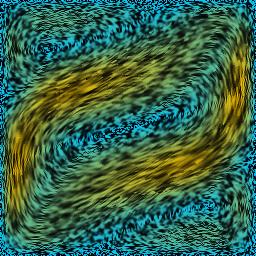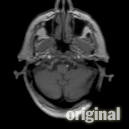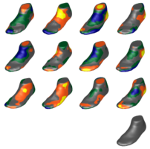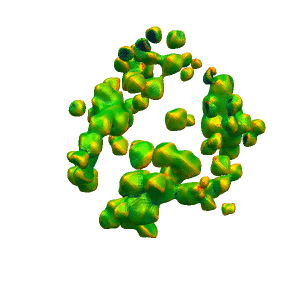Research Group of Prof. Dr. Martin Rumpf
Research Projects
Current




Numerical optimization of shape microstructures
Project C06, DFG SFB 1060.
This project deals with the two-scale optimization of elastic materials. It is well known that microstructures form when minimizing compliance or tracking type cost functionals, unless a penalty on the area of material interfaces is used. The optimal microstructures are well-understood and can be represented by nested laminates. The laminate construction is an analytically elegant tool but can hardly be reproduced in mechanical devices, nor is it observed in optimization problems posed in nature. Thus, the question arises how close one can get to the optimal design with constructible microstructures. To this end, different approaches will be investigated and compared, namely: microscopic rod models with varying rod thickness, microscopic geometries described by a finite set of parameters, and non-constrained interfaces on the micro-scale with a microscopic interface regularization.
To measure the closeness both to the achievable optimal design within the considered class and to a globally optimal laminate design, an a posteriori error analysis will be developed. Here, concepts for a residual error estimation based on the Lagrangian formulation of the optimization problem will be picked up to derive a posteriori estimates for the macroscopic error in the parameters describing microscopic geometries. In addition, the error caused by the chosen microscopic geometric model will be quantified via a posteriori error analysis. These resulting error estimates will be used to implement adaptive algorithms to steer the necessary and sufficient refinement of the macroscopic grid on which the parameters for the microscopic geometries are given and on which the microscopic geometric model is selected.
Furthermore, a phase field model will be developed to describe non-constrained material interfaces on the micro-scale, where a diffuse interface energy regularizes the microscopically optimal material design. For this model truly two-scale a posteriori error estimates for the resulting shape optimization problem will be developed. This error analysis will enable mesh adaptivity on both the macro-scale, where the microscopic elastic energy density is evaluated for a given macroscopic elastic displacement, and the micro-scale, where the microscopic energy in dependence of the local microscopic interface geometry is actually computed.
Concerning the underlying material design the focus will be on thick elastic domains in 2D or 3D filled with a composite of two different elastic materials or with an elastic and a void phase. As an alternative, rod type models on the micro-scale will be considered. With respect to the physical model, we will mainly deal with linearized elasticity and incorporate nonlinear material laws in later stages of the project.
Finally, this project aims at carrying over the two-scale analysis of elastic bulk material to thin elastic shells, where the (in general nonlinear) stored elastic energy of a shell depends on the relative shape operator. Optimization will be performed with respect to the geometry and the thickness of the shell and will later be extended to an optimization of the shell microstructure.
Completed

4D structural analysis of the sugar beet geometry
Project D4, BMBF competence network.

Anisotropic Curvature Flows in Surface Modeling

Mathematical modeling and simulation of microstructured magnetic-shape-memory materials
Project A6, DFG priority program 1239.

Morphological Non-Rigid Registration

Multi-Scale Shape Optimization under Uncertainty

Segmentation with adaptive Level Set methods
